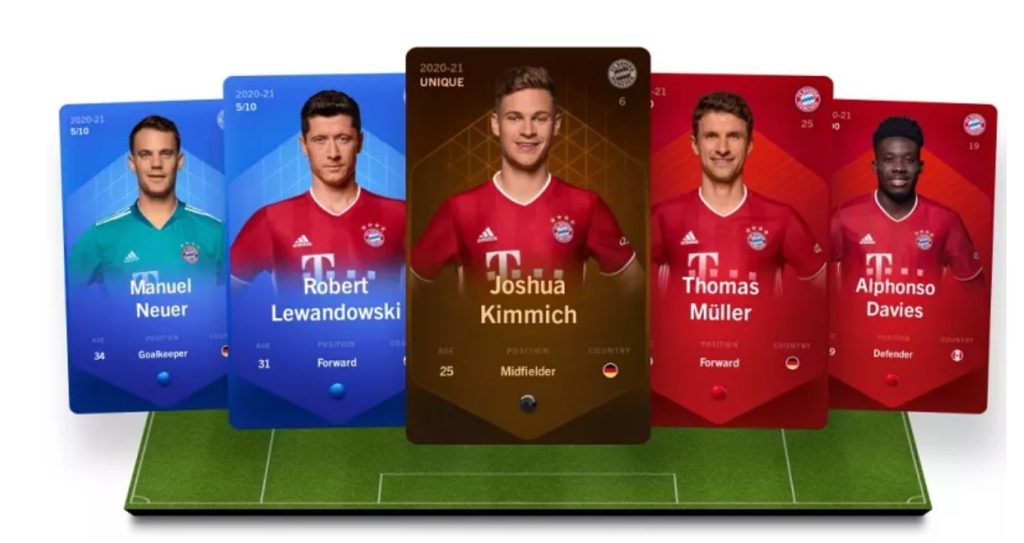
In a recent panel at the Proof of Talk conference in Paris, four leaders in Web3 and blockchain gaming talked about the challenges they face, and the opportunities they are focused on for the future.
Moderator and journalist Raphaël Bloch said that Web3 gaming had experienced a year that has been “quite hard for the whole industry,” and pressed his guests to share the lessons they have learned.
The speakers at ‘Game On, Web3: New Use Cases and The Revolution in Gaming Success Metrics’ were Nicolas Pouard (Head of Blockchain Initiatives, Ubisoft Strategic Innovation Lab) , Brian O’hagan (Growth Lead, Sorare), Sebastien Borget (Co-Founder & COO, The Sandbox), Sami Chlagou (Founder & CEO, Cross the Ages).
Here is an edited precis of quotes from each of the panelists.
Brian O’hagan (Growth Lead, Sorare)
If you buy an item in Fortnite, you basically rent that costume and you can’t really own it. The promise of Web3 games is that you truly own these items. You can do whatever you want with them, including, in theory, using them elsewhere than in that gaming ecosystem.
That’s the holy grail of Web3 gaming and it’s the context behind Sorare (image above) – being able to trade your [sports star] cards outside of Sorare’s servers and being able to use them in other games.
We had an experiment two years ago where you could use your Sorare cards in a Ubisoft game (One-Shot League]. We’re at a very early stage overall but what’s really exciting is to see gaming studios like EA Sports partnering with the likes of Nike and looking at interoperability. I think we’ll see more and more of these [deals] between big brands.
The technology services the user experience. It only makes sense if it improves the user experience. And that’s super important. You’ll never see us [in the game] talk about Web3 or NFTs. It needs to be something that the player understands through the game, and by using it.
90% of people are scared of Web3 and crypto. They have negative preconceived ideas about it. That is a hurdle that we’re working to overcome, by working with different payment providers.
It’s still early. It’s going to take time before we see mass adoption of games with items that you can exchange. So we keep building, keep improving these games and keep trying to attract Web2 audiences.
Sebastien Borget (Co-Founder & COO, The Sandbox)
For us, it’s all about the creator economy. It’s beyond the importance of owning your digital assets. We see the future of gaming as – anyone can become a creator. 75% of Gen Z don’t want to just stream what they play. They want to make their own characters, their own levels and to extend the experience way beyond the original games through modding etc.
It’s really unfair that those players who contribute the value of their time and the content they bring to those gaming platform, don’t really benefit from it. Blockchain is a solution to that problem and it enables the network effect. With a platform like The Sandbox, we’re not just creating games, we’re designing a new format of entertainment that is social, that relies a lot on user generated content to attract more users.
Nicolas Pouard (Head of Blockchain Initiatives, Ubisoft Strategic Innovation Lab)
Each time there is a new technology on the market, we want to experiment, to try to build something that explores new opportunities for players and to deliver different kinds of gameplay.
We try to not to be too linked to the crypto world. We are using the technology for what it can bring to the games. Even if the market is low as it is today. Even if there is a lot of stuff happening in the field. We are really focused on building for players, which means building games. If we are able to create fun, we can then expand or enrich the experience and the ecosystem with what the blockchain can offer.
We are all looking for the next step – how to use this technology to make it more social – I think that’s the real goal.
Sami Chlagou (Founder & CEO, Cross the Ages)
The model we have today in Web 3 gaming is like going from the Blackberry to the iPhone. We are creating something that is easier for the player to experience. They don’t need to understand how wallets work. They want a simple process.
But that takes time. You can’t make a game worth playing in six months. It takes two, three years to create something sustainable. We do it step by step, growing our audience, our trades and our retention.
What we want to do from the beginning is to create a deep experience where the player for sure will have ownership. However, it can go deeper than that with interoperability. Cross the Ages is a trading card game. It’s not something that can reach everyone. Our second game is coming in next year, and it will be an open world where you can use your NFTs. This will be a game changer because you will be able to use everything you made, and the time you spent, in a different game. That multiplies the experience, and makes it deeper for the player.
The aim is to create a whole ecosystem where our players will be able to move from one game to another. This is how we expect to attract more people.
—
You can watch the entire panel here, beginning around the one hour mark.
Colin Campbell has been reporting on the gaming industry for more than three decades, including for Polygon, IGN, The Guardian, Next Generation, and The Economist.
 GameDaily.biz © 2024 | All Rights Reserved.
GameDaily.biz © 2024 | All Rights Reserved.